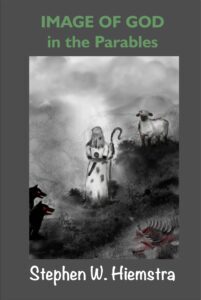The Talents

Teach us to number our days
that we may get a heart of wisdom.
(Ps 90:12)
By Stephen W. Hiemstra
Jesus teaches us to watch for his return, a mark of patience. Mark 13:33 reads: “Take heed, keep on the alert; for you do not know when the appointed time will come.” Likewise, Luke 12:35 echoes the Parable of the Ten Virgins: “Be dressed in readiness, and keep your lamps lit.” Directly after the Parable of the Ten Virgins in Matthew 25, we read the Parable of the Talents that not only advises watchfulness, but guides us on how to center our lives on God as we wait.
Risk-taking for Christ
The Parable of the Talents starts with advice about being watchful, but then goes on:
For it will be like a man going on a journey, who called his servants and entrusted to them his property. To one he gave five talents, to another two, to another one, to each according to his ability. Then he went away. (Matt 25:14–15)
We are then told how the first two servants invested the master’s money and doubled his principal, while the third servant buried the master’s money in the ground.
When the master returns, he settles accounts with each of the servants. The first two servants present the master with his principal and the earnings from their investments. In both cases, the master responds with the same statement: “Well done, good and faithful servant. You have been faithful over a little; I will set you over much. Enter into the joy of your master.” (Matt 25:21–23)
In contrast to the first two servants’ risk-taking, the third servant acts out of fear:
Master, I knew you to be a hard man, reaping where you did not sow, and gathering where you scattered no seed, so I was afraid, and I went and hid your talent in the ground. Here, you have what is yours. (Matt 25:24–25)
The master calls this servant “wicked and slothful” and parrots the servant’s suggestion that he is a hard man, suggesting agreement, but he goes on: “Then you ought to have invested my money with the bankers, and at my coming I should have received what was my own with interest.” (Matt 25:27)
In so many words, the master suggests that the third servant is both cowardly and imprudent, because depositing the money with a banker requires accepting little risk of financial loss. The master takes the money given to the third servant and gives it to the first. Then, the third servant is described as worthless and condemned to perdition, a penalty too harsh for most postmodern people even to hear.
Lessons on Waiting
So what do we learn from this parable? The first thing to note is the context. Immediately after the Parable of the Talents is another parable of judgment, where the goats and the sheep are separated. Then, in chapter 26 of Matthew, we read:
When Jesus had finished all these sayings, he said to his disciples, You know that after two days the Passover is coming, and the Son of Man will be delivered up to be crucified. (Matt 26:1–2)
The implication is that the three parables in chapter 25 are given to prepare the disciples for Jesus’ death, resurrection, and second coming. All three suggest that the disciples should be watchful of Christ’s return, but only the Parable of the Talents suggests how to spend the time while Jesus is absent.
Knowing that Christ will return, the parable suggests that we should be cheerful, not fearful, in our work, taking risks to advance the Kingdom of God. It is like the roulette player who knows what the next number will be: The bet measures confidence in the knowledge, determines the level of winnings, and suggests an appropriate attitude. Christ’s good and faithful servants are described as cheerful risk-takers rather than fearful hoarders, who confidently invest the king’s resources to earn the highest returns.
God of Abundance
Schlossberg (1990, 316) writes: “A steward is the caretaker of property that belongs to another. A good steward husbands the property and causes it to produce its proper income.” In the Parable of the Talents (Matt 25:14–29), Jesus pictures the good steward as not only earning income (depositing with a banker), but also taking risks to invest the property and earn above-average returns (doubling property value). By contrast, the bad steward allows the property to depreciate (hoarding property).
This last point is critical. We serve a God of abundance. In John’s Gospel (2, 6, 21), we see a God who multiples wine, bread, and fish far beyond expectations. When we model our lives on this God, we expect to be generous and take risks for the kingdom because that is the image of God that we are given and we want to be like God.
References
Schlossberg,Herbert. 1990. Idols for Destruction: The Conflict of Christian Faith and American Culture. Wheaton: Crossway Books.
The Talents
Also see:
The Face of God in the Parables
The Who Question
Preface to a Life in Tension
Other ways to engage online:
Author site: http://www.StephenWHiemstra.net
Publisher site: http://www.T2Pneuma.com
Newsletter at: https://bit.ly/Thanks_24, Signup
The post The Talents appeared first on T2Pneuma.net.



